Key Takeaways
1. ScrumMasters: From Good to Great Servant Leadership
"A good ScrumMaster grasps the responsibilities of the role. A great ScrumMaster grasps the skills and mindset of the role."
Servant leadership is key. Great ScrumMasters embody the principles of servant leadership, focusing on enabling and empowering their teams rather than exercising traditional authority. They are:
- Resourceful in removing impediments
- Enabling of team effectiveness
- Tactful in their approach
- Respected for their integrity
- Alternative in promoting counter-culture
- Inspiring to generate enthusiasm
- Nurturing of individuals and teams
- Empathic to those around them
- Disruptive in shifting the status quo
Beyond responsibilities. While good ScrumMasters understand their role, great ones internalize the mindset and continuously develop the skills needed to excel. They create environments where teams can thrive, fostering self-organization and high performance.
2. Respect and Empowerment: Foundations of Effective ScrumMasters
"It is far better to be trusted and respected than to be liked."
Earn respect through integrity. Great ScrumMasters build respect through consistent, honest behavior and by demonstrating a strong moral code. This respect allows them to:
- Facilitate effectively in challenging situations
- Ask tough questions that encourage critical reflection
- Remove impediments more successfully
- Enable change within the wider organization
Empower the team. ScrumMasters should aim to make themselves dispensable by:
- Always asking the team first for solutions
- Encouraging self-organization
- Developing the team's problem-solving skills
- Guiding the team through the Shu-Ha-Ri stages of mastery
By fostering team autonomy and capability, great ScrumMasters create high-performing teams that can function effectively even in their absence.
3. Enabling Teams: Removing Impediments and Fostering Creativity
"A good ScrumMaster creates an environment where raising impediments can occur. A great ScrumMaster creates an environment where creativity can occur."
Remove barriers creatively. Great ScrumMasters don't just identify impediments; they find innovative ways to overcome them. They:
- Challenge assumptions about obstacles
- Consider unconventional solutions
- Leverage their network for support and ideas
Foster team creativity. Beyond problem-solving, ScrumMasters create an environment that encourages creative thinking and innovation. Techniques include:
- Introducing playful elements to work (e.g., gamification)
- Using alternative mediums for expression (e.g., Lego for sprint planning)
- Encouraging "yes, and" thinking to build on ideas
- Creating space in sprints for creative problem-solving
By enabling both impediment removal and creative thinking, great ScrumMasters help teams reach their full potential and deliver exceptional results.
4. Tactful Disruption: Challenging the Status Quo with Diplomacy
"A dead ScrumMaster is a useless ScrumMaster."
Balance disruption and tact. Great ScrumMasters challenge the status quo to drive change, but do so diplomatically to maintain effectiveness. They:
- Pick their battles carefully
- Present arguments calmly and factually
- Seek alternative perspectives from different industries
- Use data and empirical evidence to support change proposals
Act with courage and consideration. While being prepared to ruffle feathers and provoke difficult conversations, great ScrumMasters:
- Respect that current processes were once rational
- Acknowledge emotional attachments to existing ways of working
- Accept certain compromises to continue driving change long-term
- Build strong relationships to increase their influence
By balancing disruptive thinking with tactful execution, ScrumMasters can effectively drive organizational change without alienating key stakeholders.
5. Nurturing Growth: Developing Individuals and Teams
"We need four hugs a day for survival. We need eight hugs a day for maintenance. We need twelve hugs a day for growth."
Focus on strengths. Great ScrumMasters recognize and build upon team strengths rather than solely focusing on weaknesses. They:
- Help teams identify their unique capabilities
- Encourage the application of strengths to overcome challenges
- Foster a positive, growth-oriented mindset
Balance individual and team development. While nurturing individual growth, great ScrumMasters prioritize team cohesion and performance. Strategies include:
- Facilitating team values and norms exercises
- Encouraging skill sharing and cross-training
- Helping individuals align personal aspirations with team goals
- Guiding teams through formation stages (e.g., Tuckman's model)
By nurturing both individual and team growth, ScrumMasters create resilient, high-performing teams capable of continuous improvement and adaptation.
6. Adaptive Retrospectives: Continuous Improvement Through Reflection
"A good ScrumMaster helps the team identify improvements. A great ScrumMaster inspires the team to be adaptive."
Foster a culture of adaptation. Great ScrumMasters encourage teams to be ADAPTIVE:
- Act on improvements
- Diverge before converging on solutions
- Account for follow-through
- Probe for understanding
- Try new approaches
- Involve everyone
- Visualize data to guide progress
- Expose and address "elephants in the room"
Make retrospectives engaging and effective. Techniques include:
- Setting retrospective goals or themes
- Using creative formats (e.g., improv games, metaphors)
- Focusing on specific areas for improvement
- Encouraging experimentation and redefining failure
By inspiring adaptive thinking and making retrospectives powerful tools for improvement, ScrumMasters help teams continuously evolve and excel.
7. Collaborative Problem-Solving: Embracing "Yes, and" Thinking
"A good ScrumMaster helps teams use "yes, but" effectively. A great ScrumMaster helps teams find more space for "yes, and.""
Foster a "yes, and" mindset. Great ScrumMasters encourage teams to build on ideas rather than immediately critiquing them. Benefits include:
- Increased creativity and innovation
- Improved team morale and engagement
- More effective problem-solving
Balance "yes, but" and "yes, and". While "yes, but" thinking can be valuable for risk identification, ScrumMasters should:
- Help teams use "yes, but" constructively
- Encourage offers and alternatives when concerns are raised
- Practice and reinforce "yes, and" thinking through exercises and games
By promoting collaborative problem-solving and idea generation, ScrumMasters help teams overcome challenges more effectively and create innovative solutions.
8. Focus and Commitment: Eliminating Distractions for Team Success
"A good ScrumMaster protects the team from distractions. A great ScrumMaster finds the root cause of those distractions and eliminates them."
Minimize context switching. Great ScrumMasters understand the detrimental effects of multitasking and work to:
- Advocate for dedicated team members
- Reduce the number of concurrent projects
- Implement focused sprint or work periods
Address root causes. Instead of just shielding the team, great ScrumMasters:
- Identify systemic causes of distractions
- Make data-driven cases for organizational changes
- Work with management to implement long-term solutions
By eliminating distractions and fostering focus, ScrumMasters help teams achieve higher productivity, better quality, and increased job satisfaction.
9. Conflict Navigation: Guiding Teams Through Disharmony to High Performance
"A good ScrumMaster will help maintain team harmony. A great ScrumMaster will guide a team through disharmony to reach a new level of teamwork."
Embrace productive conflict. Great ScrumMasters understand that conflict is necessary for team growth and:
- Create a safe environment for open, honest communication
- Encourage teams to address issues directly and respectfully
- Help teams establish and uphold team norms and agreements
Guide teams through formation stages. ScrumMasters should:
- Recognize the stages of team development (e.g., Tuckman's model)
- Facilitate appropriate interventions at each stage
- Help teams move quickly through forming and storming to reach high performance
By navigating conflicts skillfully and guiding teams through developmental stages, ScrumMasters help create resilient, high-performing teams capable of tackling complex challenges.
Last updated:
FAQ
What's "Scrum Mastery: From Good To Great Servant-Leadership" about?
- Focus on Scrum Mastery: The book by Geoff Watts is about elevating the role of a ScrumMaster from good to great, emphasizing servant-leadership.
- Practical Guidance: It provides practical advice and real-world examples to help ScrumMasters improve their effectiveness and foster high-performing teams.
- Characteristics of Great ScrumMasters: The book outlines key characteristics such as being resourceful, enabling, tactful, and inspiring.
- Servant-Leadership Approach: It emphasizes the importance of servant-leadership in creating self-organizing, empowered teams that deliver great products.
Why should I read "Scrum Mastery: From Good To Great Servant-Leadership"?
- Enhance ScrumMaster Skills: The book is ideal for ScrumMasters who want to enhance their skills and lead their teams more effectively.
- Real-World Examples: It includes numerous real-world stories and examples that illustrate the challenges and solutions in Scrum environments.
- Comprehensive Framework: The book provides a comprehensive framework for understanding and implementing servant-leadership in Scrum.
- Inspiration and Motivation: It offers inspiration and motivation for ScrumMasters to strive for greatness in their roles.
What are the key takeaways of "Scrum Mastery: From Good To Great Servant-Leadership"?
- Servant-Leadership is Key: The book emphasizes that great ScrumMasters are servant-leaders who prioritize the needs of their teams.
- Characteristics of Great ScrumMasters: It identifies key traits such as being resourceful, enabling, tactful, and inspiring.
- Continuous Improvement: The book encourages continuous improvement and adaptation in both personal and team practices.
- Empowerment and Autonomy: It highlights the importance of empowering teams to be autonomous and self-organizing.
What are the best quotes from "Scrum Mastery: From Good To Great Servant-Leadership" and what do they mean?
- "A good book reinforces what we know; a great book teaches us something new." This quote emphasizes the value of learning and growth, which is a central theme of the book.
- "A good ScrumMaster will be indispensable to a team. A great ScrumMaster will become both dispensable and wanted." It highlights the goal of creating self-sufficient teams that thrive even without constant guidance.
- "It is far better to be trusted and respected than to be liked." This underscores the importance of integrity and respect in leadership roles.
- "The courage to imagine the otherwise is our greatest resource." It encourages creativity and innovation in overcoming challenges.
How does Geoff Watts define a great ScrumMaster in "Scrum Mastery: From Good To Great Servant-Leadership"?
- Resourceful and Enabling: A great ScrumMaster is resourceful in removing impediments and enabling team effectiveness.
- Tactful and Respected: They are tactful in their interactions and respected for their integrity within the team and organization.
- Inspiring and Nurturing: Great ScrumMasters inspire enthusiasm and nurture both individual and team growth.
- Empathic and Disruptive: They are empathic to team needs and willing to disrupt the status quo to foster improvement.
What is the role of a ScrumMaster according to "Scrum Mastery: From Good To Great Servant-Leadership"?
- Facilitator and Coach: The ScrumMaster acts as a facilitator and coach, helping the team to self-organize and improve.
- Servant-Leader: They serve the team by removing impediments and supporting their needs, embodying the principles of servant-leadership.
- Change Agent: The ScrumMaster is a change agent who helps the organization adopt agile practices and improve its culture.
- Guardian of the Process: They ensure that the Scrum process is followed and that the team adheres to agile principles.
How does "Scrum Mastery: From Good To Great Servant-Leadership" suggest handling team conflicts?
- Create a Safe Environment: The book suggests creating a safe environment where team members can express concerns without fear of reprisal.
- Encourage Open Communication: It emphasizes the importance of open communication and addressing issues directly and respectfully.
- Facilitate Resolution: The ScrumMaster should facilitate conflict resolution by guiding the team through discussions and finding common ground.
- Focus on Team Growth: Conflicts should be seen as opportunities for team growth and improvement, rather than obstacles.
What is the significance of the "RE-TRAINED" acronym in "Scrum Mastery: From Good To Great Servant-Leadership"?
- Resourceful: Being creative in removing impediments to productivity.
- Enabling: Helping others be effective and empowering the team.
- Tactful: Demonstrating diplomacy and sensitivity in interactions.
- Respected: Earning trust and integrity within the team and organization.
- Alternative, Inspiring, Nurturing, Empathic, Disruptive: These traits collectively define the qualities of a great ScrumMaster.
How does "Scrum Mastery: From Good To Great Servant-Leadership" address the concept of servant-leadership?
- Focus on Team Needs: Servant-leadership prioritizes the needs of the team and helps them achieve their full potential.
- Empowerment and Autonomy: It emphasizes empowering teams to be autonomous and self-organizing.
- Encouraging Growth: Servant-leaders encourage personal and professional growth within the team.
- Building Trust: Trust and respect are foundational to servant-leadership, fostering a collaborative and supportive environment.
What are some practical tips from "Scrum Mastery: From Good To Great Servant-Leadership" for ScrumMasters?
- Ask the Team: Always start by asking the team for their input and solutions to problems.
- Make Yourself Redundant: Aim to create a self-sufficient team that doesn't rely on the ScrumMaster for every decision.
- Facilitate Feedback: Encourage a culture of feedback and continuous improvement within the team.
- Be Adaptive: Be open to change and adapt practices to suit the team's needs and context.
How does "Scrum Mastery: From Good To Great Servant-Leadership" suggest measuring team maturity?
- Avoid Traditional Models: The book advises against traditional maturity models that may not align with agile principles.
- Focus on Success: Measure success by the team's ability to deliver value and adapt to change, rather than strict adherence to processes.
- Collaborative Assessment: Work with the team to define what success looks like and how to measure progress.
- Continuous Improvement: Encourage continuous improvement and adaptation as the team evolves and matures.
What is the role of empathy in "Scrum Mastery: From Good To Great Servant-Leadership"?
- Understanding Team Needs: Empathy helps ScrumMasters understand the emotions and needs of their team members.
- Building Trust: By showing genuine empathy, ScrumMasters can build trust and strengthen team relationships.
- Facilitating Collaboration: Empathy fosters a collaborative environment where team members feel valued and heard.
- Enhancing Communication: It improves communication by allowing ScrumMasters to listen actively and respond appropriately to team concerns.
Review Summary
Scrum Mastery receives mostly positive reviews, with readers praising its practical advice, real-life examples, and insights for both new and experienced Scrum Masters. Many find it valuable for understanding team dynamics and improving leadership skills. Some criticize the book's organization and basic content, while others appreciate its focus on becoming a "great" rather than just "good" Scrum Master. Readers highlight its usefulness in addressing common challenges and fostering team growth, though a few find some suggestions impractical or outdated.
Similar Books
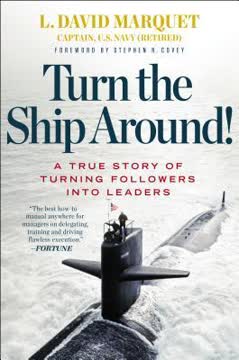
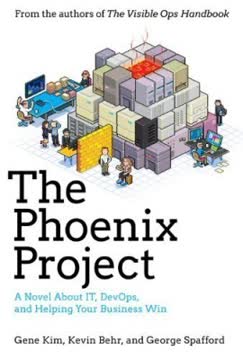

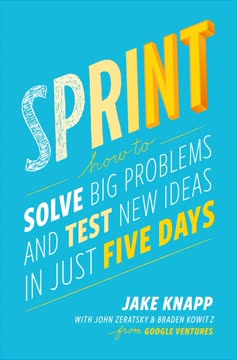
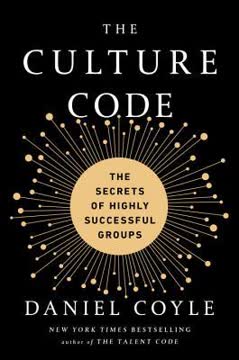
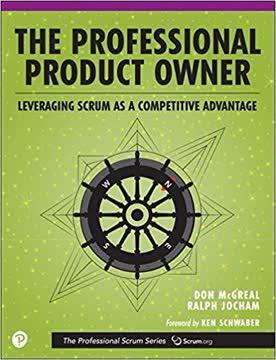


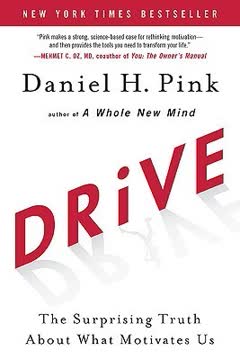

Download PDF
Download EPUB
.epub digital book format is ideal for reading ebooks on phones, tablets, and e-readers.




